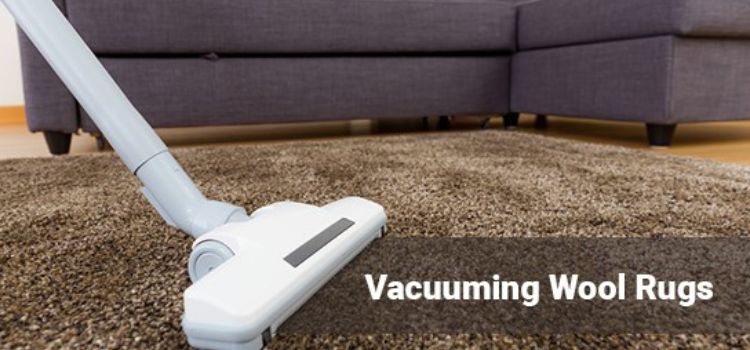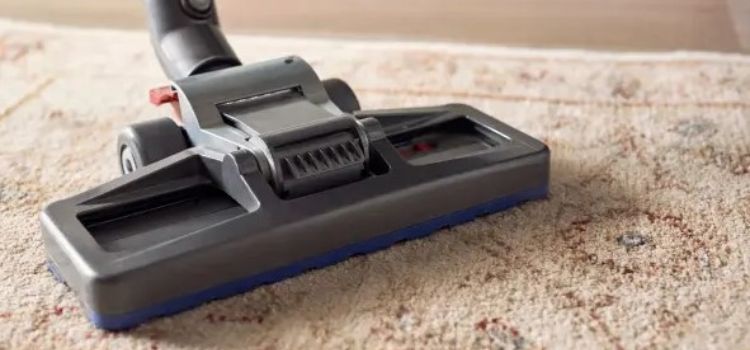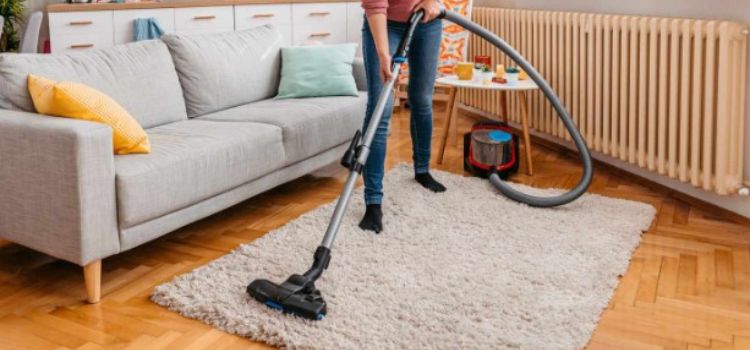As an Amazon Associate, I earn from qualifying purchases
Vacuuming a wool rug can seem daunting due to its delicate nature and high value. Wool rugs are prized for their durability, comfort, and aesthetic appeal. Properly caring for a wool rug is crucial for maintaining its appearance and longevity. This article delves into the intricacies of vacuuming wool rugs, offering a comprehensive guide to ensure your wool rug remains pristine.

Types of Wool Rugs
Hand-Knotted Wool Rugs
Hand-knotted rugs are crafted by artisans using traditional techniques, often taking months to complete. They are highly durable and typically feature intricate designs.
Machine-Made Wool Rugs
Machine-made rugs are produced using modern weaving machines. They are generally more affordable and come in various designs and patterns.
Flat-Weave Wool Rugs
Flat-weave rugs are made using a weaving technique that produces a flat surface without any pile. They are lightweight and easy to clean.
Shaggy Wool Rugs
Shaggy rugs have a deep, plush pile that provides a luxurious feel. They require specific care to maintain their fluffy texture.
Oriental Wool Rugs
Oriental rugs are a subset of hand-knotted rugs originating from regions like Persia, China, and India. They are known for their elaborate patterns and rich colors.
Tufted Wool Rugs
Tufted rugs are made by punching strands of wool into a canvas backing. They are less expensive than hand-knotted rugs but still offer a high-quality appearance.

Importance of Proper Maintenance
Enhancing Longevity
Proper care can significantly extend the life of your wool rug, preserving its beauty and structural integrity.
Maintaining Appearance
Regular maintenance helps retain the rug’s vibrant colors and intricate patterns, preventing fading and wear.
Ensuring Hygiene
Wool rugs can trap dust, allergens, and bacteria. Regular cleaning ensures a healthy living environment.
Preserving Value
Well-maintained wool rugs retain their value over time, making them worthwhile investments.
Tools and Equipment for Vacuuming Wool Rugs
Vacuum Cleaners
Choosing the right vacuum cleaner is crucial for safely cleaning wool rugs. Opt for vacuums with adjustable suction power and beater bars that can be turned off.
Vacuum Attachments
Use specialized attachments, such as upholstery brushes and crevice tools, to clean hard-to-reach areas and delicate fringes.
Carpet Sweepers
Manual carpet sweepers are a gentle alternative to vacuum cleaners, suitable for quick clean-ups and regular maintenance.
Lint Rollers
Lint rollers remove surface debris and pet hair without damaging the rug fibers.
Soft-Bristled Brushes
Soft-bristled brushes can gently lift dirt and fluff the rug fibers, enhancing its appearance.
Preparing the Wool Rug for Vacuuming
Removing Loose Debris
Before vacuuming, shake the rug to remove loose dirt and debris. This step prevents the vacuum from pushing dirt deeper into the fibers.
Checking for Damages
Inspect the rug for any damages, such as tears or loose threads, and address these issues before vacuuming to prevent further deterioration.
Protecting the Fringe
The fringe of a wool rug is delicate and can get tangled in the vacuum. Use a handheld vacuum or gently brush the fringe instead.

How to Vacuum a Wool Rug Properly
Setting Up the Vacuum Cleaner
Ensure the vacuum cleaner is set to the correct height and suction level. The high suction can damage the rug fibers.
Vacuuming Techniques
A vacuum should be placed toward the pile to avoid damaging the fibers. Use slow, gentle strokes to remove dirt and dust effectively.
Cleaning High-Traffic Areas
High-traffic areas may require more frequent vacuuming. Pay extra attention to these areas to maintain the rug’s appearance.
Addressing Spills and Stains
Blot spills immediately with a clean cloth, avoiding rubbing. For stains, use a wool-safe cleaner and follow the manufacturer’s instructions.
Special Considerations for Different Types of Wool Rugs
Hand-Knotted Rugs
Hand-knotted rugs require gentle handling to avoid damaging the intricate patterns. Use a low-suction setting and avoid vacuuming the fringe.
Machine-Made Rugs
Machine-made rugs are more durable but require careful vacuuming to avoid fraying the edges.
Flat-Weave Rugs
Flat-weave rugs can be vacuumed on both sides to remove dirt and dust. Use a low-suction setting to prevent pulling on the weave.
Shaggy Rugs
Shaggy rugs need extra care due to their deep pile. Use a vacuum with adjustable height settings to avoid damaging the fibers.
Oriental Rugs
Oriental rugs are often hand-knotted and require special care. Vacuum in the direction of the pile and use a low-suction setting.
Tufted Rugs
Tufted rugs have a backing that can be damaged by high suction. Use a low-suction setting and avoid pulling on loose threads.
Common Mistakes to Avoid
Using High Suction
The high suction can pull and damage the delicate fibers of a wool rug. Always use a low-suction setting.
Vacuuming the Fringe
The fringe can easily get tangled and damaged by the vacuum. Use a handheld vacuum or brush the fringe gently.
Over-Vacuuming
Vacuuming too frequently can wear down the rug fibers. Aim for once or twice a week, depending on the traffic level.
Ignoring Spills
Leaving spills unattended can lead to stains and damage. Blot spills immediately and treat them with a wool-safe cleaner.
Benefits of Regular Vacuuming
Prolongs Rug Life
Regular vacuuming removes dirt and debris that can wear down the rug fibers, extending the rug’s life.
Enhances Appearance
Frequent vacuuming keeps the rug fresh and vibrant, maintaining its aesthetic appeal.
Improves Indoor Air Quality
Vacuuming removes dust, allergens, and bacteria, creating a healthier indoor environment.
Prevents Damage
Regular vacuuming prevents damage to the rug fibers and backing by removing abrasive particles.
Alternative Cleaning Methods
Professional Cleaning
Professional cleaning services use specialized equipment and techniques to deep clean wool rugs without damaging them.
Dry Cleaning
Dry cleaning is a safe option for delicate wool rugs, using minimal moisture to prevent shrinking and damage.
Spot Cleaning
Spot cleaning with a wool-safe cleaner can be effective for minor stains and spills.
Shake and Beat
Shaking and beating the rug outside can remove loose dirt and dust without the risk of vacuum damage.
Steam Cleaning
Steam cleaning can be used for deep cleaning but must be done carefully to avoid saturating the rug.
FAQs About Vacuuming Wool Rugs
How Often Should I Vacuum My Wool Rug?
Vacuum your wool rug once or twice a week, depending on the level of foot traffic and the presence of pets or children.
Can I Use Any Vacuum Cleaner on My Wool Rug?
Not all vacuum cleaners are suitable for wool rugs. Choose a vacuum with adjustable suction and a beater bar that can be turned off.
What Should I Do if My Wool Rug Sheds?
Shedding is normal for new wool rugs. Regular vacuuming with a low-suction setting can help manage shedding.
How Can I Remove Pet Hair from My Wool Rug?
To remove pet hair from your wool rug, use a vacuum with a pet hair attachment or a lint roller.
Is Professional Cleaning Necessary?
Professional cleaning is recommended once a year to deep clean and maintain the rug’s condition.
Conclusion
Caring for a wool rug requires attention to detail and the proper techniques. Following the guidelines outlined in this article, you can ensure your wool rug remains beautiful and durable for years to come. Regular vacuuming, with occasional professional cleaning and proper spot treatment, will keep your wool rug in top condition, preserving its value and enhancing the ambiance of your home.
As an Amazon Associate, I earn from qualifying purchases